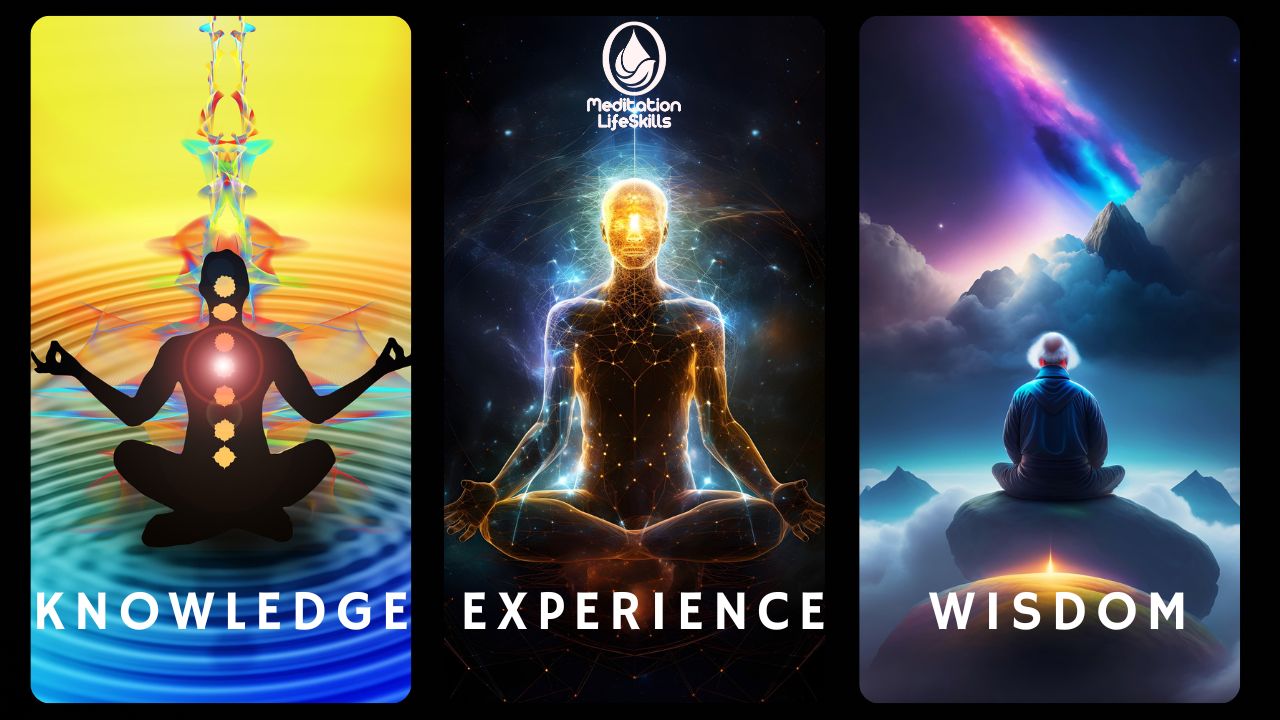Determine your intention for your meditation practice. What are you looking for? Is it spiritual development, self-realization, inner tranquility, or communion with God?
Are you seeking a spiritual connection, inner peace, self-awareness, or direction? A clear intention can improve your experience. Specific intent can help to focus and purpose your practice.
GET STARTED TODAY WITHOUT ANY RISK!
Get 7 Days of Unlimited Access Right Now
for Free When You Download Our App!
A life of transformation begins with action. There are seven stages of meditation instruction on a single platform. Live monthly Zoom coaching and training sessions.
Get unlimited free access to the Meditation Life Skills app for 7 days by downloading it now! Visit MeditationLifeSkills.com.
Developing a strong spiritual meditation practice necessitates persistent effort and a sincere desire to explore one's inner self.
Meditation can be a very effective method for spiritual development and self-discovery.
Here are some suggestions to help you develop a deeply spiritual meditation practice:
1. Establish a regular schedule: Set aside a time each day for meditation practice. The importance of consistency in deepening your experience cannot be overstated. Begin with shorter sessions and then lengthen them as you progress.
2. Find a serene and quiet space: Select a peaceful and undisturbed location where you can meditate without distractions. Make an environment that encourages tranquillity and serenity. Set aside a designated space, such as a specific room, a section of your home, or even a natural area that speaks to you.
3. Find a comfortable posture: Sit to allow you to relax while remaining awake. If sitting cross-legged on a cushion or in a chair is more comfortable, do so. Maintain a straight spine and a relaxed body.
4. Concentrate on breathing: Take a few deep breaths to center yourself. Then, return your focus to your breathing. Pay attention to the natural flow of your inhalations and exhalations. This helps to keep your awareness focused on the current moment.
5. Determine your objective: Determine your intention for your meditation practice. What are you looking for? Is it spiritual development, self-realization, inner tranquility, or communion with God?
Are you seeking a spiritual connection, inner peace, self-awareness, or direction? A clear intention can improve your experience. Specific intent can help to focus and purpose your practice.
6. Select a meditation technique: Experiment with various meditation techniques to find one that works. Breath awareness, mantra repetition, visualization, and loving-kindness meditation are common spiritual meditation approaches. Experiment to see what puts you closer to your spiritual objectives.
7. Practice mindfulness: Mindfulness is completely aware of the present moment. Make awareness a part of your spiritual meditation practice. At the same time, focus on your breath, and practice mindfulness by noticing your thoughts, feelings, and sensations without judgment. Allow them to pass by while remaining focused on your chosen meditation technique.
8. Select a focal point: Select a specific focal point for your meditation to strengthen your spiritual connection. This could be a religious object, a mantra, a candle flame, or simply an image with spiritual meaning. Concentrate on this focal point and allow it to enhance your concentration and connection.
9. Be open to the divine: As you begin meditation, open your heart and mind to the divine's presence, whatever you sense. Allow spiritual energy, love, wisdom, or higher consciousness to flow through you. Be open to the experience and yield to it.
10. Spend time in nature: Spending time in nature may be profoundly spiritual and beneficial to your meditation practice. Take your practice outside and meditate in natural settings. Feel the earth beneath your feet, listen to nature's sounds, and connect with the natural world's vitality.
11. Investigate spiritual teachings: Read spiritual writings, publications, or teachings from other traditions that speak to you. These can provide useful insights and broaden your perspective of spirituality. Consider the lessons and incorporate them into your meditation practice.
12. Make time for silence and isolation: Make time for silence and solitude. Remove yourself from outside distractions and immerse yourself in the peaceful space within. This allows you to connect with your inner self and the spiritual components of your practice more fully.
13. Seek direction and community: Consider getting spiritual instruction from experienced teachers or joining a meditation group or community. Engaging with like-minded people can bring encouragement, inspiration, and a chance to learn from others on the spiritual road.
14. Develop thankfulness and compassion: Develop gratitude for the blessings in your life and compassion for yourself and others. Thank God for the chance to meditate and any spiritual experiences or insights you may have during your practice.
These characteristics reinforce your spiritual connection while opening your heart to love and understanding. Gratitude strengthens your spiritual connection and promotes a peaceful outlook in your life.
16. Be patient and persistent: Deepening your spiritual meditation practice will take a lifetime. It requires time, patience, and determination. Accept the process, remain devoted to your practice, and give yourself permission to grow and change at your own speed.
17. Finish with self-reflection: After you've finished your meditation, take a few seconds to reflect on your experience. Journaling or reflecting on your ideas and feelings can help you better comprehend and integrate the spiritual parts of your practice.
18. Meditation allows for self-inquiry and self-reflection. Focus on your thoughts, feelings, and insights during meditation as you progress in your practice. Journaling can be useful for capturing and expanding your understanding of your experiences.
Remember that spiritual meditation is a personal experience, and each person's spiritual meditation practice is unique. Trust your instincts and go with what seems right to you. As you continue to enhance your spiritual connection via meditation, let your practice evolve and adapt.
Be gentle and compassionate to yourself as you meditate to discover and strengthen your spiritual connection. Regular practice will assist you in cultivating a deeper sense of spirituality in your life.















